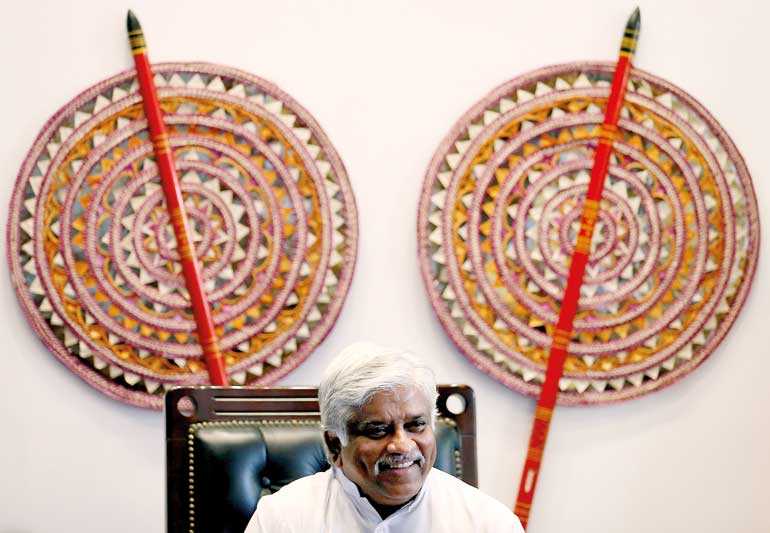Friday Feb 20, 2026
Friday Feb 20, 2026
Monday, 16 July 2018 01:46 - - {{hitsCtrl.values.hits}}

The tug of war between the Petroleum and Finance ministries over the oil pricing formula continued with subject minister Arjuna Ranatunga renewing his criticism of the fuel price hike.
“I am against the price hike. I have argued against it during the Cabinet discussion also. But the Treasury says that this needs to be done. I think state corporations such as the Petroleum Corporation, Ceylon Electricity Board and the Water Board should not be run as profit-making entities but more as service providers,” he told reporters.
The Minister also said that if there was a price increase in the world market the Government should be able to absorb the loss not to pass it on to the people. Raising concerns over price increases in other commodities owing to the fuel price, he said there should be a mechanism to ensure price revisions when the fuel price drops.
“There is no system in place to monitor price reductions when the fuel price goes down. That is what I am saying; I am not in favour of the price hike. But we had to agree as the Treasury recommended it,” Ranatunga said.
The comments come in the wake of a cold war between the two ministries to gain control over decision-making on fuel prices, with a Cabinet proposal submitted by the Petroleum Resources Development Minister to revise the mechanism outlined in the Finance Ministry cabinet paper already approved on 2 June.
In the paper submitted during last week’s Cabinet meeting, the Minister has outlined issues with the mechanism set up by the Finance Ministry saying that as per the Ceylon Petroleum Corporation Act, a price revision order can only come into operation when it is made by the subject minister. Further, he said he had explained that decisions taken to revise fuel prices without adequate preplanning had resulted in difficulties to the CPC.
The Petroleum Ministry recommended setting up the committee with the ministry secretary as the chair, while including the Assistant Secretary from the Treasury, National Economic Council Secretary, Director General of Department of Fiscal Policy, Director General of Public Enterprises and the Chairman or representative of the Ceylon Petroleum Corporation (CPC) and Chairman or representative of Ceylon Petroleum Storage Terminals Ltd. (CPSTL) as members.
The committee was proposed to replace the Finance Ministry-led four-member Officials Committee which was chaired by the Assistant Secretary from the Treasury. The committee also included representatives from Petroleum Resources Ministry, Department of Public Enterprises and Department of Fiscal Policy. However, it did not include representatives from the CPC or CPSTL. The subject minister was of the view that the committee should be headed by the ministry secretary not an assistant of the Finance Ministry.
Outlining the mechanism, Ranatunga recommended that the price revisions should be announced by the subject minister, changing the newly-established system to announce price revisions. However, the proposal got rejected both at the Cabinet meeting and during discussions with the President held later, leading to relations between the two ministries being further strained.